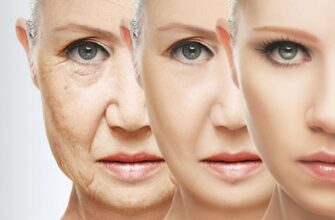LDL Cholesterol Calculator
I. Introduction
LDL cholesterol, also known as “bad cholesterol,” plays a crucial role in assessing cardiovascular health. Understanding the significance of LDL cholesterol levels and how they impact overall well-being is essential. In this article, we will explore the concept of an LDL cholesterol calculator and its relevance in maintaining a healthy lifestyle.
What is LDL Cholesterol?
LDL (low-density lipoprotein) cholesterol refers to a type of cholesterol that carries lipids through the bloodstream. It is often labeled as “bad” because high levels of LDL cholesterol can contribute to the buildup of plaque in the arteries, leading to various cardiovascular problems.
Why is LDL Cholesterol Important?
Monitoring LDL cholesterol levels is crucial as excessive amounts can result in the accumulation of plaque within the arterial walls, restricting blood flow. This restriction can increase the risk of heart attacks, strokes, and other cardiovascular conditions. Assessing LDL cholesterol levels helps individuals take appropriate measures to maintain their cardiovascular health.
Understanding LDL Cholesterol Calculator
An LDL cholesterol calculator is a tool used to estimate LDL cholesterol levels based on various factors such as total cholesterol, HDL cholesterol, and triglyceride levels. This calculator employs a specific formula to provide an approximate value for LDL cholesterol, offering individuals an insight into their cardiovascular risk profile.
II. LDL Cholesterol Calculation
Calculating LDL cholesterol involves using a formula that takes into account other lipid parameters. The most commonly used formula is the Friedewald equation, which estimates LDL cholesterol levels based on total cholesterol, HDL cholesterol, and triglyceride levels.
LDL Cholesterol Formula
The Friedewald equation is expressed as follows: LDL cholesterol = Total cholesterol – (HDL cholesterol + (Triglycerides / 5))
Factors Affecting LDL Cholesterol Calculation
It’s important to note that certain conditions, such as high triglyceride levels or medication use, can impact the accuracy of LDL cholesterol calculation using the Friedewald equation. In such cases, alternative methods, like direct LDL cholesterol measurement, may be employed.
III. LDL Cholesterol Ranges
Understanding different LDL cholesterol ranges is crucial for assessing cardiovascular risk and developing appropriate preventive measures.
Optimal LDL Cholesterol Levels
Optimal LDL cholesterol levels typically range between 70 and 100 mg/dL. Maintaining LDL cholesterol within this range can help minimize the risk of heart disease and other associated complications.
High LDL Cholesterol Levels
High LDL cholesterol levels, exceeding 160 mg/dL, can significantly increase the likelihood of atherosclerosis and cardiovascular diseases. Taking necessary steps to lower LDL cholesterol levels becomes crucial in such cases.
Low LDL Cholesterol Levels
Unusually low LDL cholesterol levels can also be a cause for concern, as they might indicate an underlying health condition or inadequate lipid transport in the body. It is important to consult a healthcare professional to determine the underlying cause and potential implications.
IV. Health Risks Associated with High LDL Cholesterol
Elevated LDL cholesterol levels can lead to severe health risks, primarily associated with atherosclerosis and cardiovascular diseases.
Atherosclerosis
Atherosclerosis refers to the buildup of plaque within the arteries, restricting blood flow. High LDL cholesterol levels contribute to the accumulation of cholesterol in the arterial walls, initiating the development of atherosclerotic plaques. Over time, these plaques can lead to arterial blockages, potentially resulting in heart attacks or strokes.
Cardiovascular Diseases
High LDL cholesterol is a significant risk factor for cardiovascular diseases, including coronary artery disease, angina, and peripheral artery disease. These conditions can cause chest pain, shortness of breath, reduced mobility, and various other complications.
V. Controlling LDL Cholesterol Levels
Lowering LDL cholesterol levels is crucial for reducing the risk of cardiovascular diseases. Adopting certain lifestyle modifications and, if necessary, medication can help maintain healthy LDL cholesterol levels.
Lifestyle Modifications
- Healthy Diet: Following a balanced diet low in saturated and trans fats can help reduce LDL cholesterol levels. Incorporate foods rich in soluble fiber, such as fruits, vegetables, and whole grains, into your daily meals.
- Regular Exercise: Engaging in physical activities regularly can boost high-density lipoprotein (HDL) cholesterol levels, which help remove LDL cholesterol from the bloodstream.
- Weight Management: Maintaining a healthy weight through proper diet and exercise can positively impact LDL cholesterol levels.
- Smoking Cessation: Quitting smoking is vital, as smoking contributes to reduced HDL cholesterol levels and increases the risk of cardiovascular diseases.
Medications
In some cases, lifestyle modifications alone may not be sufficient to control LDL cholesterol levels. Healthcare professionals may prescribe medications such as statins, ezetimibe, or PCSK9 inhibitors to help manage LDL cholesterol and reduce the risk of cardiovascular diseases.
VI. Importance of Regular LDL Cholesterol Testing
Regular testing of LDL cholesterol levels is crucial for monitoring cardiovascular health and evaluating the effectiveness of preventive measures.
Frequency of Testing
The frequency of LDL cholesterol testing depends on various factors, including age, family history, and pre-existing medical conditions. It is generally recommended to have LDL cholesterol levels checked every four to six years in adults. However, individuals with a history of cardiovascular diseases or other risk factors may require more frequent testing.
Monitoring Progress
Regular LDL cholesterol testing allows individuals to monitor the effectiveness of lifestyle modifications or medication interventions. It provides an opportunity to make adjustments to the treatment plan and assess overall progress in maintaining healthy LDL cholesterol levels.
VII. Conclusion
Maintaining healthy LDL cholesterol levels is crucial for reducing the risk of cardiovascular diseases. Understanding the significance of LDL cholesterol and utilizing tools like LDL cholesterol calculators can help individuals assess their cardiovascular risk profiles. By adopting lifestyle modifications, undergoing regular testing, and seeking appropriate medical guidance, individuals can take control of their cardiovascular health.
VIII. FAQs
Q1. Can LDL cholesterol levels be lowered without medication? Yes, lifestyle modifications such as following a healthy diet, regular exercise, weight management, and smoking cessation can effectively lower LDL cholesterol levels in many cases.
Q2. Are there any side effects of cholesterol-lowering medications? Like any medication, cholesterol-lowering medications may have side effects. However, most individuals tolerate these medications well. It is important to discuss any concerns with a healthcare professional.
Q3. Can high LDL cholesterol levels be genetic? Yes, high LDL cholesterol levels can be influenced by genetic factors. This condition, known as familial hypercholesterolemia, can significantly increase the risk of cardiovascular diseases.
Q4. Can LDL cholesterol levels fluctuate over time? Yes, LDL cholesterol levels can vary due to factors such as diet, exercise, and overall health. Regular monitoring helps track these fluctuations and identify trends.
Q5. Is LDL cholesterol the only factor contributing to cardiovascular diseases? No, cardiovascular diseases are multifactorial, and LDL cholesterol is one of the significant risk factors. Other factors such as high blood pressure, diabetes, and smoking also contribute to the development of these diseases.
Please note that the information provided in this article is for educational purposes only and should not replace professional medical advice. It is always recommended to consult with a healthcare professional for personalized guidance and treatment options regarding LDL cholesterol and cardiovascular health.












